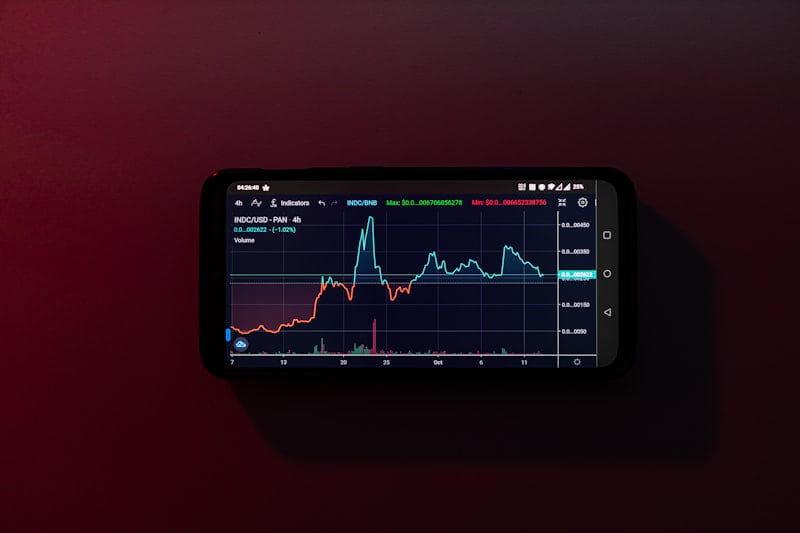How Do Cryptocurrency Futures ETFs Work?

One key aspect of these ETFs is leverage. By trading futures contracts, investors can control a larger amount of cryptocurrency than their initial investment. This amplifies potential profits but also increases the risk of losses. It’s like using a magnifying glass on both gains and losses – the potential reward is higher, but so is the risk.
Investors in these ETFs don’t need to manage the complexities of buying, storing, and securing actual cryptocurrencies. Instead, they can buy and sell shares of the ETF through their brokerage accounts, just like trading stocks. This accessibility makes cryptocurrency futures ETFs attractive to both institutional and individual investors looking to diversify their portfolios or speculate on cryptocurrency price movements.
Regulation plays a crucial role. Unlike direct cryptocurrency investments which face regulatory uncertainties, futures ETFs are regulated financial products. This oversight provides investors with a level of security and transparency that’s often lacking in the broader crypto market.
Cryptocurrency futures ETFs offer a bridge between traditional finance and the burgeoning world of digital assets. They provide a regulated, accessible way for investors to participate in the cryptocurrency market’s potential upside while managing risks through futures contracts. As interest in cryptocurrencies continues to grow, these ETFs are likely to play an increasingly important role in investment strategies worldwide.
Decoding the Mechanics: Understanding Cryptocurrency Futures ETFs
Cryptocurrency Futures ETFs (Exchange-Traded Funds) have sparked considerable interest among investors looking to delve deeper into digital assets. But what exactly are these ETFs, and how do they function within the dynamic world of cryptocurrencies?
Imagine you’re navigating a river with multiple currents – each representing a different cryptocurrency. Now, think of a Futures ETF as a versatile boat that allows you to trade on these currents without directly owning the boats themselves. Instead of purchasing the actual cryptocurrencies, investors can buy shares in the ETF, which in turn holds futures contracts tied to the digital assets.
This setup provides several advantages. Firstly, it allows investors to speculate on the price movements of cryptocurrencies without the complexities of owning and storing them. Secondly, Futures ETFs bring a layer of regulation and oversight, which can reassure cautious investors who are wary of the volatile nature of cryptocurrencies.

Moreover, Futures ETFs can offer exposure to multiple cryptocurrencies within a single investment vehicle. This diversification can mitigate risks associated with investing in individual digital assets, spreading potential gains or losses across a broader spectrum.
In essence, Cryptocurrency Futures ETFs simplify access to the crypto market while introducing a level of predictability and structure. They cater to both seasoned traders seeking new opportunities and traditional investors cautiously exploring the potential of digital assets.
Understanding these mechanics is crucial for anyone looking to navigate the evolving landscape of cryptocurrencies with confidence and clarity. As these ETFs continue to evolve, they promise to reshape how investors interact with and perceive the future of digital finance.
Navigating the Future: Inside Cryptocurrency Futures ETFs Explained
These ETFs allow investors to speculate on the future price movements of cryptocurrencies without owning the underlying assets. By trading futures contracts, investors can potentially profit from both upward and downward price swings in the cryptocurrency market, leveraging their positions for amplified gains or losses.
One of the key benefits of Cryptocurrency Futures ETFs is their ability to offer exposure to the crypto market with enhanced liquidity and regulated trading. This makes them attractive to institutional investors who seek to manage risk and comply with regulatory standards while participating in the crypto space.
Moreover, Futures ETFs provide a more structured approach to investing in cryptocurrencies compared to direct ownership, as they follow predefined rules and strategies in managing futures contracts. This can mitigate some of the volatility associated with the crypto market while offering potential returns based on market movements.
Investors considering Cryptocurrency Futures ETFs should be aware of their unique characteristics, including the role of futures contracts in determining fund performance. Futures contracts have expiration dates and require active management to roll over positions or settle contracts, which impacts fund performance and investor returns.
Overall, Cryptocurrency Futures ETFs represent a forward-looking approach to investing in digital assets, blending the innovation of cryptocurrencies with the regulatory framework of traditional financial markets. As the landscape continues to evolve, these ETFs are poised to play a significant role in shaping the future of cryptocurrency investment strategies worldwide.
From Concept to Trading Floor: A Deep Dive into Crypto Futures ETFs
Have you ever wondered how Crypto Futures ETFs go from an idea to being traded on the financial markets? Let’s take a journey into the fascinating world where financial innovation meets digital assets.
Imagine you’re an investor looking to capitalize on the volatility of cryptocurrencies without owning them directly. Enter Crypto Futures ETFs: these financial instruments track the performance of cryptocurrency futures contracts rather than holding the underlying assets themselves.
The concept behind Crypto Futures ETFs is ingenious yet straightforward. Instead of purchasing Bitcoin or Ethereum directly, investors can buy shares in an ETF that mirrors the price movements of futures contracts tied to these digital currencies. This approach allows for greater flexibility and risk management, appealing to both seasoned traders and institutional investors alike.
From a regulatory standpoint, the journey from concept to trading floor involves meticulous planning and adherence to financial guidelines. Regulatory bodies scrutinize each ETF proposal to ensure it complies with market integrity and investor protection standards. Once approved, the ETF can move forward to be listed on major exchanges, opening it up to a global investor base.
On the trading floor, Crypto Futures ETFs bring a new dimension to the financial landscape. They offer a regulated avenue for investors to speculate on cryptocurrency price movements, all while benefiting from the liquidity and transparency of traditional exchange-traded funds.
In essence, Crypto Futures ETFs represent a bridge between the traditional financial world and the burgeoning realm of digital assets. They provide a regulated and accessible means for investors to participate in the crypto market’s potential upside, with risk management tools built into their structure.
As the crypto market continues to evolve, so too will the innovation surrounding ETFs. Whether you’re a novice investor or a seasoned trader, understanding the journey from concept to trading floor can unlock new opportunities in the dynamic world of cryptocurrencies.
This article aims to be informative yet engaging, highlighting the process of Crypto Futures ETFs from inception to their role in financial markets, all while maintaining a conversational tone and incorporating elements that capture the reader’s interest.
Investing in the Future: Your Guide to Cryptocurrency Futures ETFs
Curious about dipping your toes into the world of cryptocurrency investments? Cryptocurrency Futures ETFs (Exchange-Traded Funds) could be your next move. These innovative financial instruments offer a unique way to gain exposure to digital currencies like Bitcoin and Ethereum without directly owning them. But how exactly do they work?
Imagine you’re at a futuristic marketplace where you can buy contracts that predict the future price of cryptocurrencies. That’s essentially what a Cryptocurrency Futures ETF does. It tracks the performance of a basket of futures contracts linked to various digital assets. This means you can invest in the anticipated future value of cryptocurrencies rather than holding the coins themselves.
One of the biggest advantages of Cryptocurrency Futures ETFs is flexibility. Unlike traditional investments that require you to buy and store cryptocurrencies securely, ETFs allow you to trade on price movements without worrying about storage or security issues. It’s like riding a wave in the ocean without actually owning the entire sea.

On the flip side, if you have a knack for predicting market trends, Cryptocurrency Futures ETFs offer significant profit potential. Successful traders can capitalize on both rising and falling markets, making it a versatile tool in your investment arsenal. It’s like being able to surf not just the waves but also the tides.
Before making any decisions, do your homework. Research different ETFs, understand their underlying strategies, and consider consulting with a financial advisor who specializes in digital assets. This isn’t just about investing; it’s about navigating through uncharted waters with confidence.
So, if you’re intrigued by the potential of cryptocurrencies but prefer a less risky approach, Cryptocurrency Futures ETFs could be your gateway to the future of finance. Ready to ride the wave?
